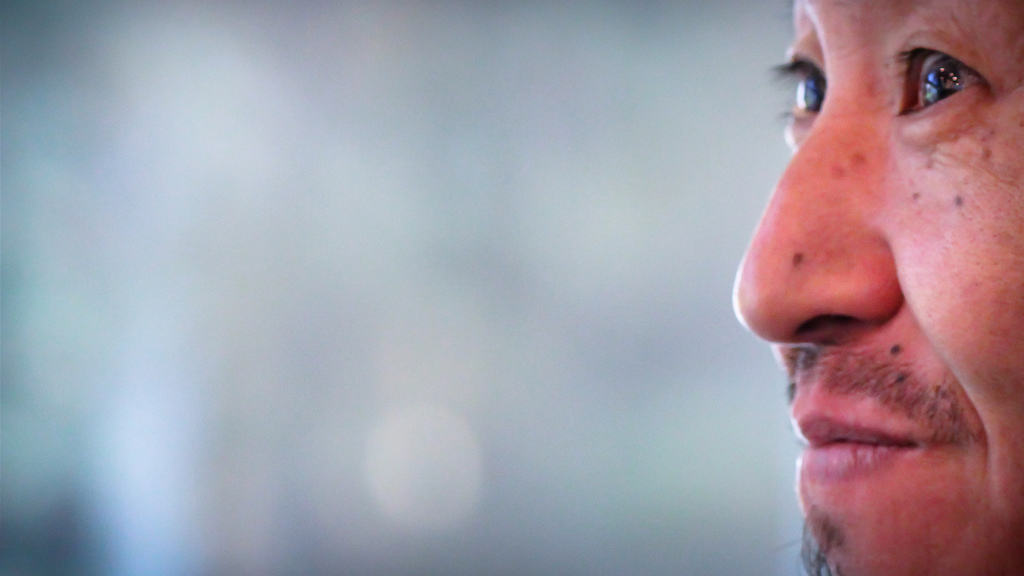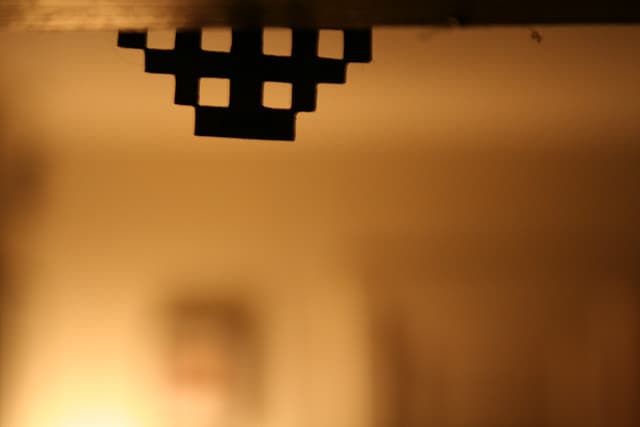A few weeks ago I got a glimpse of the pride – and protectiveness – I think a parent might feel for her child. And it felt awesome.
It happened because we were rolling out the first-ever Kairos retreat for the seniors at our Jesuit high school.
But before I get ahead of myself, a little background info: this Kairos retreat was the first we’ve ever had because I work at a new Cristo Rey school in the Twin Cities, which means that the students who come to our school are… not rich; they have real financial needs. But financial need is just one node in a much larger web of needs they often have. Some others? A need for positive role models. For stability. For direction. For a patient love that returns insult with encouragement. Over the two years I have been teaching here, most days I go home spent, and not just physically but emotionally as well. Working at Cristo Rey I’ve got to be ready to give both.
Last year a student (I’ll call him “Sam”) wouldn’t stop acting up in my class – and it was only day three of sophomore religion. Now I’d taught before, so this wasn’t a total surprise and I asked him several times – first politely, then firmly – to quiet down. The third time I reminded him, he stood up and shouted, “man, f**k this class. I hate this school!” He threw his chair aside and stormed out of the room.
I fancy myself a tolerant sort, but up to then a comprehensive “f**k this” was not on my radar. And my initial reaction to Sam was indignation, an anger that I quickly realized was masking a fear: the fear that a student was bold enough to name me a fraud. There stood I, trying to win over a roomful of religion students, and all it took was one outburst to shake me.
After composing myself and restarting class, I could feel that anger slow-boiling within, soothed only with thoughts of retribution. I wanted to show Sam who was in control here. I wanted him punished, expelled – okay, maybe just suspended – but something. Anything other than the usual “kids will be kids” shrug. So, after a few days of in-school suspension for him and few days of prayer for me, it was time for Sam to meet with me and an Assistant Principal before returning to classes. It did not begin easily. Sam ducked and weaved, refusing to apologize or recognize that anything he had said was out of line. As calmly and rationally as I could, I detailed exactly what it was that was inappropriate with exhorting a class to – what was that word again? – “f**k” itself.
Sam met my efforts with a stone-faced silence. He glared right back at me, leaning back in his chair, and I could feel the urge for retribution rise again. “What a smug little such-and-such,” played the now-familiar notes inside my head, “he can’t act like this.” But our Assistant Principal – who’d seen this movie before – looked at him calmly. “Sam,” he said, “do you get what Mr. Simmons is talking about?”
“I hate it here.”
“Sam, do you really hate this school? Sounds like Mr. Simmons was being reasonable to you, don’t you think?”
It took a moment before Sam’s lower lip began to quiver, then his nostrils flared and his eyes welled with tears. He began to sob the way people do when they don’t care who’s looking. He broke down and wept. It was only after catching his breath that he could talk about all the awful stuff going on at home. About absent parents and sporadic love. About basketball being his favorite escape and now he was afraid he’d lost that because of his blow up in my class.
Sam didn’t hate me. He didn’t hate the school. He hates the cards life dealt him and he doesn’t know how to respond. He was testing us – testing me – to see if I’d return hurt for hurt. And, even though I wanted to, I didn’t. And I’m so glad I didn’t. As Fr. Greg Boyle writes in Tattoos on the Heart, “Here is what we seek: a compassion that can stand in awe at what the poor have to carry rather than stand in judgment at how they carry it.”
***
Fast forward to our first Kairos retreat. As everybody who’s been on a Kairos knows, it’s a retreat of tradition, led by the peers of the students who attend them. And since it’s peer-led, the retreat gets shaped and reshaped each year, riddled with new surprises as it passes through the hands of the students (and supportive faculty and parents) who run it. Since this was our first retreat we needed someone to bring this tradition to our students; so we asked some college students to come help our students get a feel for what Kairos meant and how they could be leaders of it themselves.
Now, even though these college leaders didn’t know our students well, things went well at first. The college students got up and modelled their talks, the kids listened and learned. But after a couple hours or more the students in my small group were getting squirrely, chatting and fidgeting. One of the frustrated college leaders started to reprimand our students for their lack of attention.
A fellow teacher gently stepped in, saying, “don’t worry about disciplining the students, we’ll handle that.”
“I can do it,” he replied tartly, “you just need to tell them to be more respectful. It’s not that hard.”
Maybe I’ve grown soft (or just inured to the constant undercurrent of chatter), but in that moment I felt a surge of defensiveness for my students that I can only describe as… parental. Because compassion is that hard. And patience is that hard. And, for our kids, giving respect is that hard – especially when you’re not used to receiving it.
I felt proud that, despite all the needs and life-limiting challenges they face, our students have made it this far. I felt proud that they were willing to give up a weekend to be vulnerable before God and one other. I’m just so proud of them – and that makes me protective.
***
Our kids bring their burdens and hurts. And, in that unconscious way of teenagers, they’re crying out for someone to hear them crying for attention and love. Writes Boyle:
Compassion isn’t just about feeling the pain of others; it’s about bringing them in toward yourself. If we love what God loves, then, in compassion, margins get erased. “Be compassionate as God is compassionate,” means the dismantling of barriers that exclude.
Sam’s a junior now, and he’s still no angel. But now he seeks me out and throws his arm over my shoulder as we walk down a crowded high school hallway, and tells me about how life is going.
Compassion is that hard. But it’s worth it.
— // —
The cover image, by Flickr user 1Q78, can be found here.



